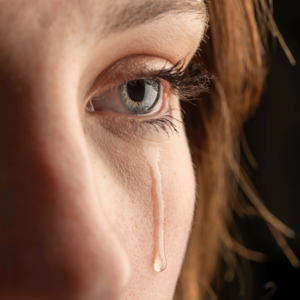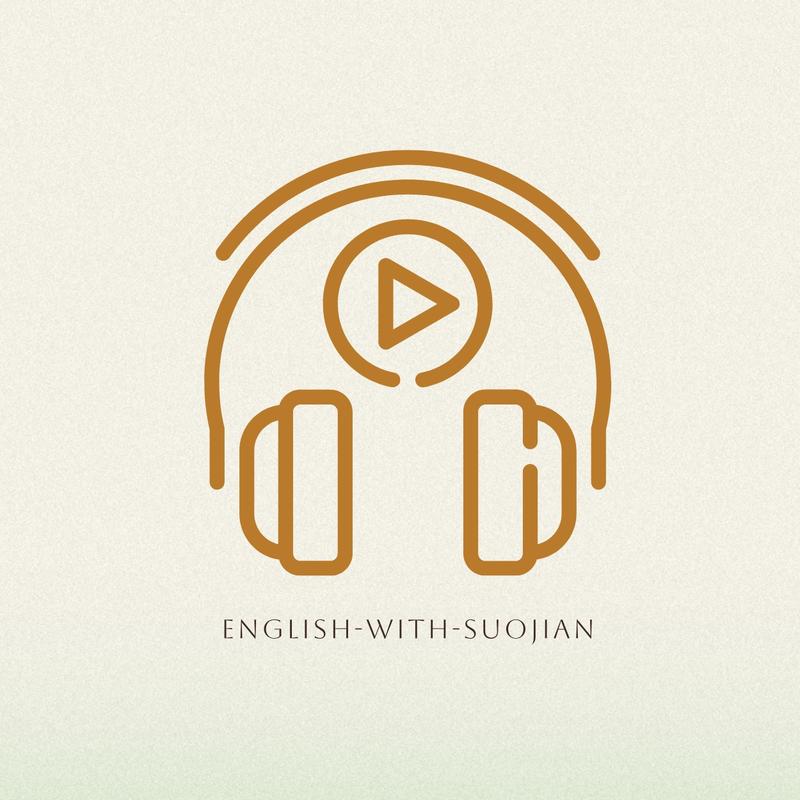
时长:
2分钟
播放:
2,477
发布:
3个月前
主播...
简介...
Is crying good for us?
What makes you cry? Being moved by a soppy or sad movie, waving a loved one off, or getting emotional after splitting up with your partner can all cause tears to roll down our faces. We all have the power to cry, but is that a good thing?
When you think about it, shedding tears from your eyes is an odd thing to do. But it seems to be an automatic reaction when we get sad, upset or even when we're very happy. What triggers this reaction differs from person to person. However, the feeling is the same – your cheeks puff up, your eyes tighten and before you know it, tears are streaming down your face. Some of us may sniffle a little while others might cry like a baby – and some people suggest that it's women who cry more than men.
A study in the UK in 2017 found that women admitted that they cry 72 times a year. This was, on average, more than men. Writing for the BBC, Adam Rutherford says "according to pretty much every study done, women do cry more than men, and this result has been consistent since we've been looking." But does this mean men don't get as upset or emotional as women, or are they just more embarrassed about showing their true feelings? The debate continues.
One place where we experience emotional and tearful outbursts is in the workplace. This can be somewhere where emotions run high – someone might be stressed, their workload might be too much, and, as therapist, Joanna Cross told the BBC, "crying is often a build-up of frustration and undealt-with situations and it's a bit of a final straw moment." She describes how someone might start weeping when they're just asked to make a cup of tea because, "actually that's often a backlog of situations."
But crying in the office or elsewhere can be cathartic: it can actually make you feel better. Maybe it dissolves or clears the negative or sad feelings you've had. Bawling your eyes out shows others how you feel, so perhaps it's a crying shame that more of us, particularly men, don't cry more often.
词汇表
soppy [ˈsɒpi] adj. 煽情的,伤感的,催泪的
split up (with) [splɪt] 分手,断绝关系,离婚
shed tears [ʃed] 流泪,落泪
odd [ɒd] adj. 奇怪的,反常的,不寻常的
puff up [pʌf] 鼓起,膨胀
stream down your face [striːm] (泪水、汗水等)顺着脸颊流下,从脸上淌落
sniffle [ˈsnɪfl] v.(尤指哭泣或感冒时) 抽鼻子;抽泣
cry like a baby 像婴儿一样大哭,放声大哭
consistent [kənˈsɪstənt] adj. 一致的,始终如一的
tearful [ˈtɪəfl] adj. 含泪的,哭泣的,流泪的
outburst [ˈaʊtbɜːst] n. (情感的)爆发,突发
emotions run high 情绪高涨,情绪波动大
workload [ˈwɜːkləʊd] n. 工作量,工作负担
build-up [ˈbɪld ʌp] n. (问题、压力等)累积,积聚,逐渐增加
undealt-with [ˌʌnˈdelt wɪð] adj. 未处理的,未解决的
final straw [strɔː] n. 最后一根稻草,使人最终崩溃的一击
weep [wiːp] v. 哭泣,流泪
backlog [ˈbæklɒɡ] n. 积压的工作,未办的事务
cathartic [kəˈθɑːtɪk] adj. 宣泄情绪的,解压的
dissolve [dɪˈzɒlv] vt. 化解,消除(情绪等)
bawl your eyes out [bɔːl] 痛哭流涕,号啕大哭
it's a crying shame 真是遗憾,太可惜了;太不像话了,真不应该
📖 翻译、pdf见公众号【琐简英语】,回复"1"可进【打卡交流群】
What makes you cry? Being moved by a soppy or sad movie, waving a loved one off, or getting emotional after splitting up with your partner can all cause tears to roll down our faces. We all have the power to cry, but is that a good thing?
When you think about it, shedding tears from your eyes is an odd thing to do. But it seems to be an automatic reaction when we get sad, upset or even when we're very happy. What triggers this reaction differs from person to person. However, the feeling is the same – your cheeks puff up, your eyes tighten and before you know it, tears are streaming down your face. Some of us may sniffle a little while others might cry like a baby – and some people suggest that it's women who cry more than men.
A study in the UK in 2017 found that women admitted that they cry 72 times a year. This was, on average, more than men. Writing for the BBC, Adam Rutherford says "according to pretty much every study done, women do cry more than men, and this result has been consistent since we've been looking." But does this mean men don't get as upset or emotional as women, or are they just more embarrassed about showing their true feelings? The debate continues.
One place where we experience emotional and tearful outbursts is in the workplace. This can be somewhere where emotions run high – someone might be stressed, their workload might be too much, and, as therapist, Joanna Cross told the BBC, "crying is often a build-up of frustration and undealt-with situations and it's a bit of a final straw moment." She describes how someone might start weeping when they're just asked to make a cup of tea because, "actually that's often a backlog of situations."
But crying in the office or elsewhere can be cathartic: it can actually make you feel better. Maybe it dissolves or clears the negative or sad feelings you've had. Bawling your eyes out shows others how you feel, so perhaps it's a crying shame that more of us, particularly men, don't cry more often.
词汇表
soppy [ˈsɒpi] adj. 煽情的,伤感的,催泪的
split up (with) [splɪt] 分手,断绝关系,离婚
shed tears [ʃed] 流泪,落泪
odd [ɒd] adj. 奇怪的,反常的,不寻常的
puff up [pʌf] 鼓起,膨胀
stream down your face [striːm] (泪水、汗水等)顺着脸颊流下,从脸上淌落
sniffle [ˈsnɪfl] v.(尤指哭泣或感冒时) 抽鼻子;抽泣
cry like a baby 像婴儿一样大哭,放声大哭
consistent [kənˈsɪstənt] adj. 一致的,始终如一的
tearful [ˈtɪəfl] adj. 含泪的,哭泣的,流泪的
outburst [ˈaʊtbɜːst] n. (情感的)爆发,突发
emotions run high 情绪高涨,情绪波动大
workload [ˈwɜːkləʊd] n. 工作量,工作负担
build-up [ˈbɪld ʌp] n. (问题、压力等)累积,积聚,逐渐增加
undealt-with [ˌʌnˈdelt wɪð] adj. 未处理的,未解决的
final straw [strɔː] n. 最后一根稻草,使人最终崩溃的一击
weep [wiːp] v. 哭泣,流泪
backlog [ˈbæklɒɡ] n. 积压的工作,未办的事务
cathartic [kəˈθɑːtɪk] adj. 宣泄情绪的,解压的
dissolve [dɪˈzɒlv] vt. 化解,消除(情绪等)
bawl your eyes out [bɔːl] 痛哭流涕,号啕大哭
it's a crying shame 真是遗憾,太可惜了;太不像话了,真不应该
📖 翻译、pdf见公众号【琐简英语】,回复"1"可进【打卡交流群】
评价...
空空如也
小宇宙热门评论...

王艺ming
3个月前
内蒙古
0
👍

王艺ming
3个月前
内蒙古
0
👍

王艺ming
3个月前
内蒙古
0
👍

王艺ming
3个月前
内蒙古
0
👍

王艺ming
3个月前
内蒙古
0
👍

王艺ming
3个月前
内蒙古
0
👍

